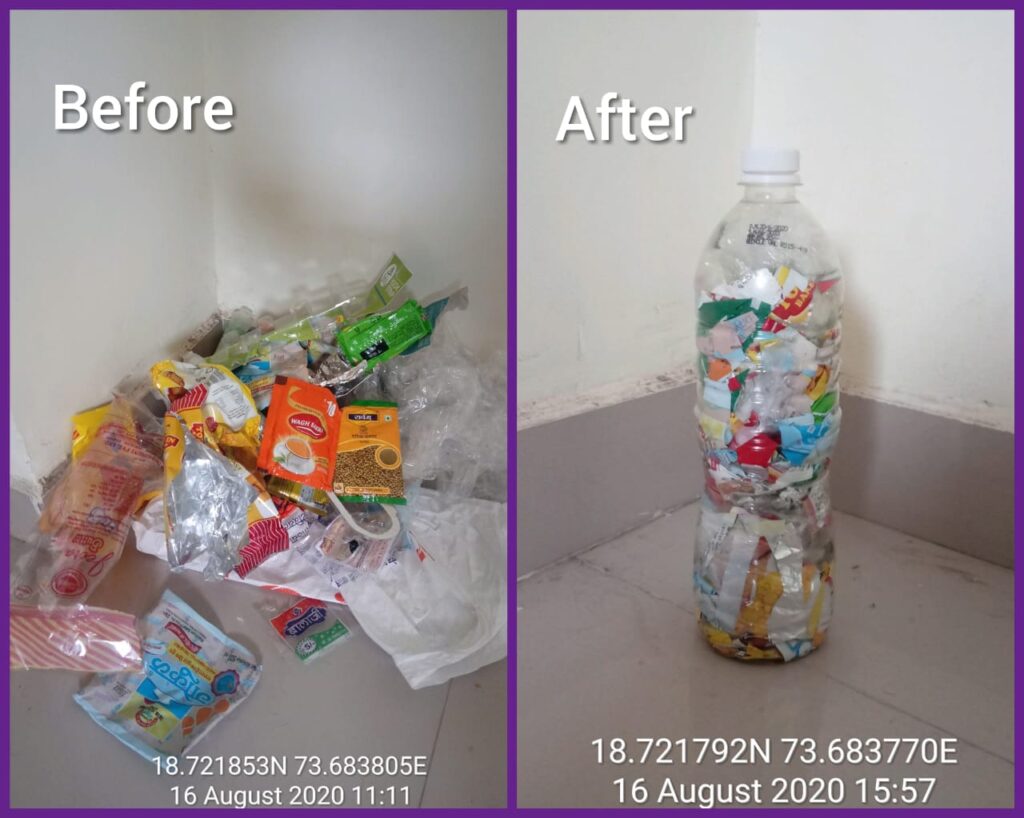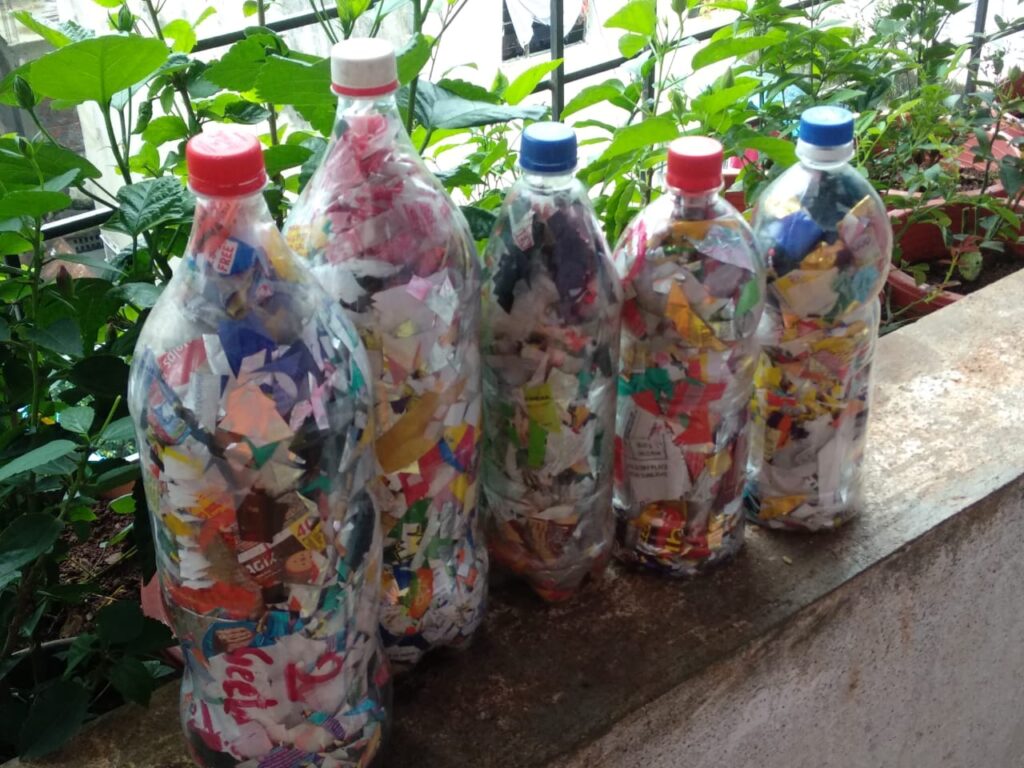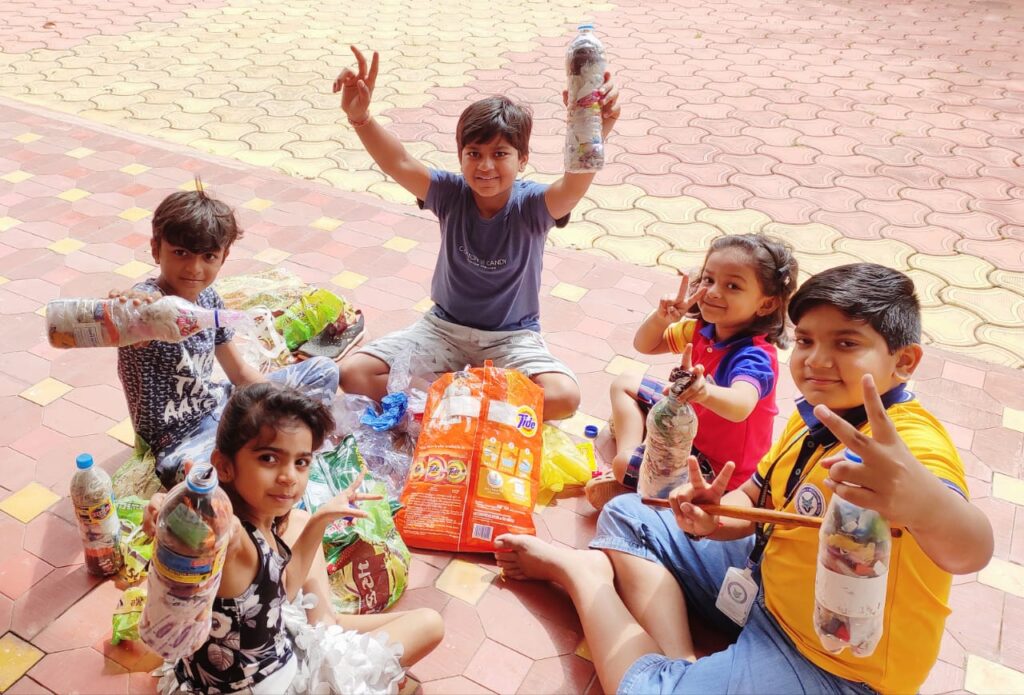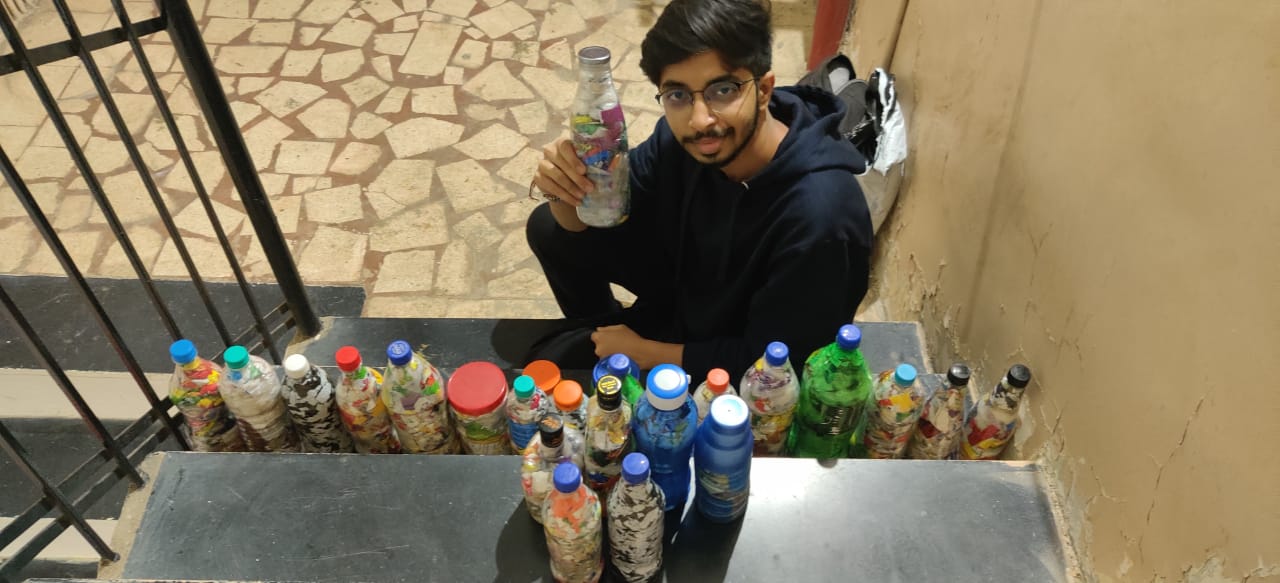Vivek Gurav, a techie and founder of Pune Ploggers during the lockdown initiated the concept of ‘eco-bricks’ by upcycling plastic. In the last five months, Gurav along with 250 volunteers of Pune Ploggers made 2500 eco-bricks. They will be using these bricks in constructing orphanages, slums and for other such social initiatives. The main plastic used in eco-bricks was household plastic. Individuals started creating eco-bricks in COVID-19 lockdown through virtual sessions.

“As the corona pandemic started, there was lockdown imposed so we could not conduct our weekend cleanliness drives. However, all the ploggers were craving to do something while staying at home. That’s when I thought of creating eco-bricks. While you are sitting at home and there were a lot of issues going on outside, this was one of the best ways to keep everyone involved plus it also helps in the safe disposal of plastics bags at the household level. A lot of plastic waste is mixed with wet waste and dumped in dustbins that creates a problem, segregation is very important for plastic upcycling. If we do this sooner, we can see a significant change in waste management. To focus on that, I engaged everyone in proper segregation of waste. As all the members of the family are at home, everyone could become a part of it. So these are the primary reasons to create eco-bricks in lockdown,” said Vivek Gurav
Pune Ploggers is a volunteer association founded by Vivek Gurav on October 2, 2019. With more than 250 volunteers, they conduct cleanliness drives in the city during the weekends while walking and jogging. In last one year, Pune Ploggers have collected around 100 tonnes of plastic waste during their cleanliness drives.

The main aim behind creating this eco-bricks is to upcycle the plastic and stop it from piling up in landfills. Vivek said, “Eco bricks are created by putting lots of plastic waste chopped in small pieces in one bottle. The sole rule of creating eco-bricks is that the plastic should be clean and dry, a small trick to preparing them hard and sustainable is piling the plastic waste into bottle layer by layer. One plastic bottle of 1 litre would accommodate 300-400 grams of plastic waste. In the last five months, we have created around 2500 eco-bricks so almost 800 kg of plastic waste has been recycled. Upcycling of Plastic waste is the main aim behind this so that the waste plastic does not enter the landfills and can cause problems to the environment. Plastic can be always recycled and new articles can be made from it and it can be done at the household level by making these eco-bricks.”
These eco-bricks can be utilized as the construction of such structure that does not require loads of strength. For example, the compound wall can be constructed as it does not require as much assistance. Already there are several projects in African provinces, where they use eco-bricks in construction of schools in slum localities.

Vivek said, “Now school children have also started showing interest in making eco-bricks and even senior citizens are also involved in creating eco-bricks in their free times. Schools are reaching out to us to create webinars and teach students to make eco-bricks. Now we have more than 2000 people working on eco-bricks. We have set a target of creating 1 lakh of eco-bricks.”
Vivek further said, “Eco-bricks has made its base in cities like Delhi, Mumbai, Pune, Nashik, Bangalore, and Chennai. We use Zoom for associating with people all over India.”
“In the future, we are looking forward to conducting more waste management initiatives. We will conduct sessions with societies about waste management, waste segregation, recycling, upcycling of plastic waste. At present we are working on conducting cleanliness drive at Karnala Bird watching spot,” shared Vivek Gurav about his future plans as he signs off.
Written by: Rujuta Kakade


Really, interestesting and helpful Article to save & clean earth, by such type of ideas.
Too good idea to recycle plastic